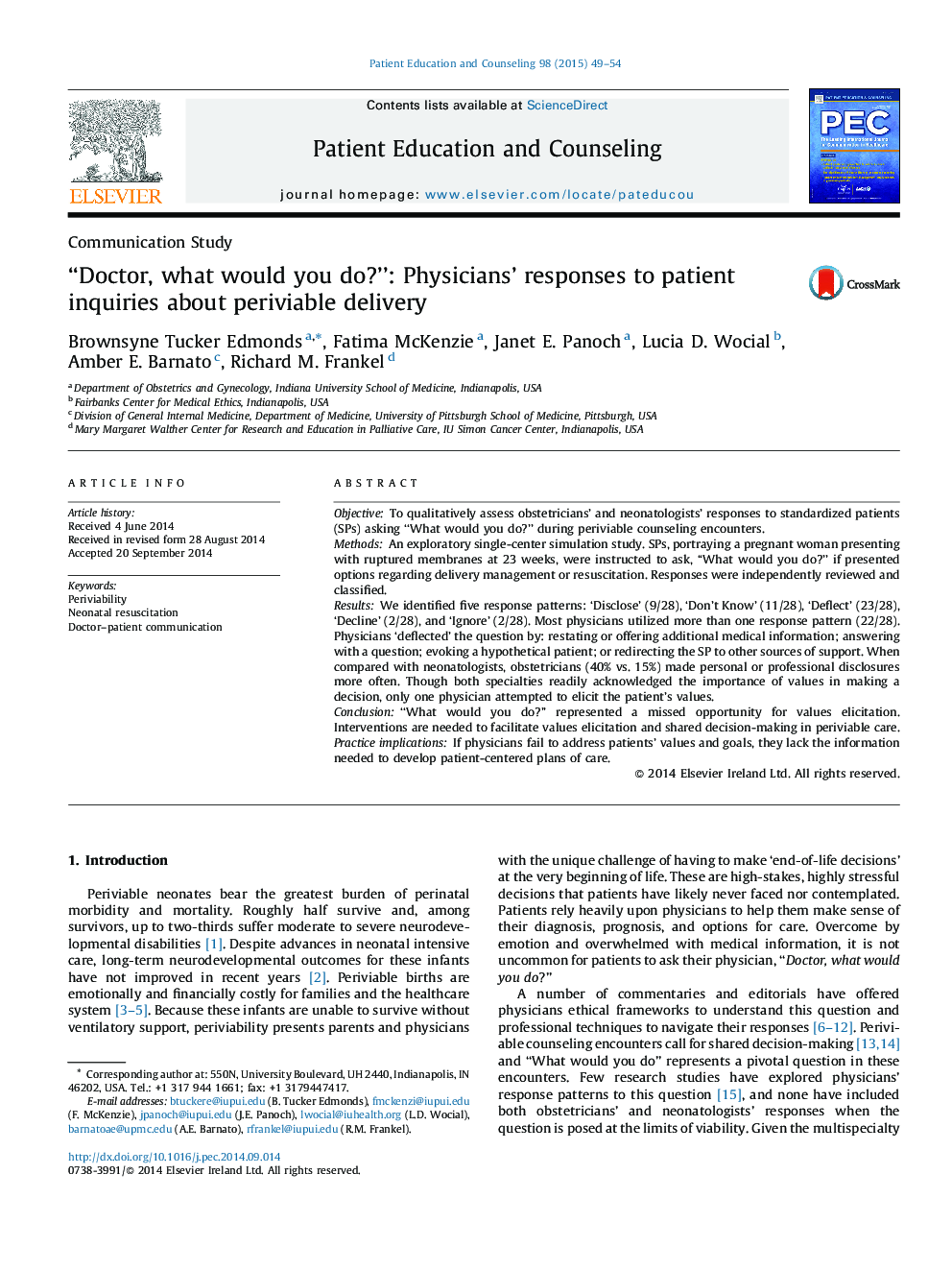| Article ID | Journal | Published Year | Pages | File Type |
|---|---|---|---|---|
| 3813242 | Patient Education and Counseling | 2015 | 6 Pages |
•Most physicians avoided providing a personal disclosure or recommendation when asked for advice.•Physicians often deflected the question by restating or offering additional medical information.•Physicians stated that the decision depended on the patient's values but failed to elicit values.
ObjectiveTo qualitatively assess obstetricians’ and neonatologists’ responses to standardized patients (SPs) asking “What would you do?” during periviable counseling encounters.MethodsAn exploratory single-center simulation study. SPs, portraying a pregnant woman presenting with ruptured membranes at 23 weeks, were instructed to ask, “What would you do?” if presented options regarding delivery management or resuscitation. Responses were independently reviewed and classified.ResultsWe identified five response patterns: ‘Disclose’ (9/28), ‘Don’t Know’ (11/28), ‘Deflect’ (23/28), ‘Decline’ (2/28), and ‘Ignore’ (2/28). Most physicians utilized more than one response pattern (22/28). Physicians ‘deflected’ the question by: restating or offering additional medical information; answering with a question; evoking a hypothetical patient; or redirecting the SP to other sources of support. When compared with neonatologists, obstetricians (40% vs. 15%) made personal or professional disclosures more often. Though both specialties readily acknowledged the importance of values in making a decision, only one physician attempted to elicit the patient's values.Conclusion“What would you do?” represented a missed opportunity for values elicitation. Interventions are needed to facilitate values elicitation and shared decision-making in periviable care.Practice implicationsIf physicians fail to address patients’ values and goals, they lack the information needed to develop patient-centered plans of care.
